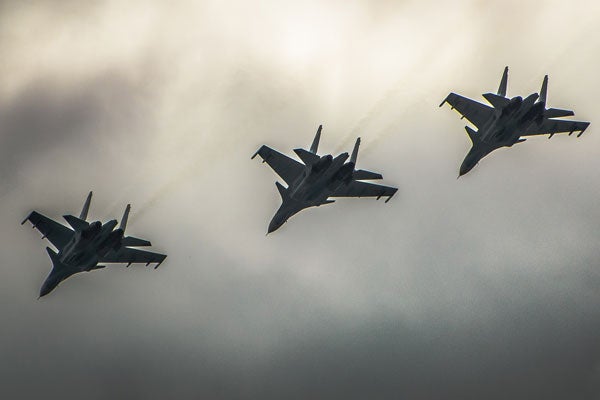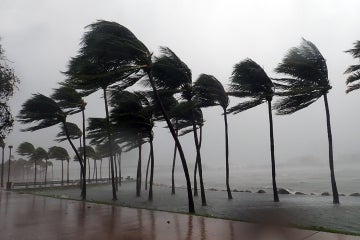
Why Russia is now in Syria and why it's “nonsense” to say Putin is being threatening
Published: October 26, 2015
When Russia launched air strikes in Syria last month the world seemed caught off guard – especially the US-led coalition already active in Syrian skies.
The civil war that has seen 250,000 Syrians killed, a million injured and an estimated 11 million others forced from their homes, already involves many regional and international powers.
The war that started out four years ago with protests against President Bashar al-Assad’s hard rule, quickly escalated into brutal fighting between the government forces, an array of disbanded rebels and ISIS, who seemed to grow in strength as the government weakened.
The world took sides: Iran and Lebanon's Hezbollah movement have been propping up Assad’s government against the rebels with troops on the ground, while Turkey, Saudi Arabia and Qatar back the opposition, with support from the US, UK and France from the air. All claim to be fighting ISIS – including Russia, as it lends support to Assad’s government from the air.
Seva Gunitsky is an assistant professor at the department of political science and the Munk School of Global Affairs at the University of Toronto, examining the effects of the international system on domestic reforms. He spoke with U of T News about the message Moscow is trying to get across to the rest of the world and how Russia might contribute to a political solution in the end.
Why has Russia gotten involved in Syria?
Russia claims it wants to prevent terrorism and instability in the region. That’s not completely false, but it's far down the list of the “real” reasons. Russia’s participation demonstrates its influence in the region and preserves a long-term client state in Syria. It also brings Russia closer to Iran, Assad’s other major supporter. Most importantly, it switches the conversation about Russia’s global role from Ukraine to Syria. This allows Russia to shift attention toward the destabilizing role of the West in the Middle East. Russia can now connect the rise of ISIS with the US invasion of Iraq, which is precisely what Putin has been doing. But at the same time, Russian involvement highlights the shared interests between Russia and the West – which they don’t have in Ukraine, but they do have in the Middle East, in the form of Islamist radicals.
So Syria is a gamble for Russia – logistically, financially, and even in terms of Russian public opinion, which has been much more hesitant about Russian involvement, with overtones of the Afghanistan catastrophe of the 1980s. It’s much more of a “war of choice” than Ukraine ever was, and in that sense it’s a risky gambit. But Russia is willing to take that risk if it means preserving its influence, redefining its global role, and forcing a shift in the US-Russian relationship. The West will now have to deal with Russia directly, and deal with it as an equal, in reaching a settlement in Syria.
The US-led coalition is already active in Syria’s airspace. Why are Russian airstrikes causing such a stir?
The airstrikes are causing a stir because the West feels threatened by Russia's presence. There is an assumption that Putin is acting from a position of strength and taking advantage of American indecisiveness. But in fact it’s Russia that’s acting from a position of weakness. It’s facing serious economic problems, it has few allies and even fewer levers of influence outside its immediate sphere. So the idea that Putin is being threatening and daring and decisive is nonsense.
Russian foreign policy is essentially reactive, not proactive. Russia sees itself as continuously threatened by the West – by new US bases in Central Asia, or enlargement of NATO, or fights over the Arctic, or the destabilization of Ukraine. We can argue about whether they’re justified in feeling this way, but regardless, Russia is acting out of a sense of fear and paranoia, not boldness and daring. Until the West recognizes that Russia’s policy is motivated by fear of encirclement, not a desire to provoke or challenge the West, we won’t have any lasting diplomatic cooperation.
How do you see the situation playing out?
Over the next few months or even weeks, we will see a counter-attack by the Syrian army, and an attempt to consolidate its positions with the help of Russia and Iran in places like Aleppo. Further down the line, Russia will look for European support for a new political process, and try to force the US to negotiate.
In a way, Russian actions force the US to the diplomatic table – now that no military resolution is possible, the US has to work out a political solution. In fact, the US Secretary of State John Kerry just met his Russian counterpart Sergei Lavrov in Vienna, and Russian media is reporting that the Turkish and Saudi foreign ministers would join them to find a solution to the crisis.



